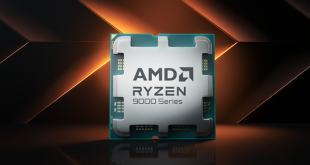Sometimes an upgrade is really simple to understand. Other times you need a mini-computer, advanced maths degree and several hours of umm-ing and arr-ing to see if the new products is, in fact, better. KitGuru scans the spec sheet for the brand new FX-4130 and ponders motives and machinations.
With immediate effect, there are no more FX-4100 processors.
Sure, the channel will have some – but they're going the way of the dodo, so don't expect existing stock to last long. On the plus side, the price for the new chip remains the same and it has a faster clock – in both standard and turbo mode. We could go into loads of wordy-detail about how this new chip differs from the old one, but here's a cool picture instead:-

.
In most situations, if you saw total power draws for 2 products and one was 95w while the other was 125w, you would assume that the 125w was the older chip. Not so with the FX-4130. AMD says that it is offering a better quality heatsink with greater overclocking flexibility – at exactly the same price – so the new chip is definitely one generation ahead.
The proof will be in the eating of the pudding, but we like their claim that, in idle mode, less power will be drawn by the new chip – even though it has the larger TDP – simply because it is more advanced.
At stock-clock speeds, the new chip will be less than 10% faster than the old one, but – according to AMD sauces – will dominate it's ancestor in O/C mode.

KitGuru says: The combination of low-end AMD FX processor with a high end graphics card, has proven popular with system builders like Aria, OcUK and MESH. In that case, this increase in power will be more then welcome. Only downside would be for those building HTPC-type systems, for whom the lower overall TDP was important.
Comment below or in the KitGuru forums.
 KitGuru KitGuru.net – Tech News | Hardware News | Hardware Reviews | IOS | Mobile | Gaming | Graphics Cards
KitGuru KitGuru.net – Tech News | Hardware News | Hardware Reviews | IOS | Mobile | Gaming | Graphics Cards



‘– according to AMD sauces’
What do they taste like?
@Leffe. That should be a typo.
AMD should increase its IPC much better in steamroller. I wish Piledriver should have been Bulldozer. Without any competition, it’s like a monopoly for Intel